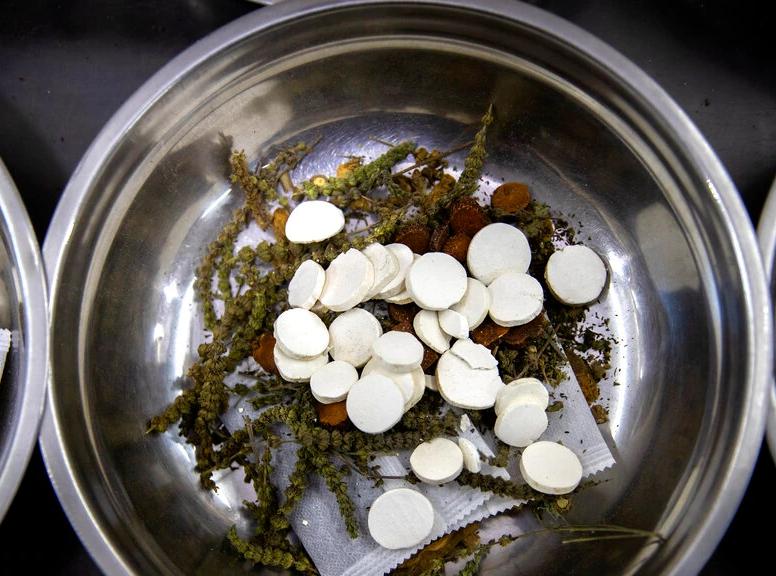In Kenya, Hing Pal Singh is one of the patients who visits the Oriental Chinese Herbal Clinic in the capital, Nairobi.
Singh is 85 years old. He has had problems with his back for five years. Singh is now trying herbal treatments. These are medicines made from plants.
“There is a slight difference," Singh said. "... It's only a week now. It will take at least another 12 to 15 sessions. Then we see how it goes.”
A 2020 study from the Beijing research group Development Reimagined, said that traditional Chinese herbal treatments were becoming more popular in Africa.
And an opinion piece published in the state-run China Daily in February 2020 praised Chinese traditional medicine. It said it would increase the Chinese economy, improve world health, and increase China’s soft power.
Li said some of his patients were improving from herbal COVID-19 treatments. However, there is little scientific evidence to show that these can help against the disease.
“Many people buy our herbal tea to counter COVID-19," Li said. "The results are good,” he added.
Environmentalists fear the growth of traditional Chinese medicine will mean that more hunters will go after endangered animals. Animals like rhinoceroses and some kinds of snakes are used to make some traditional treatments.
Daniel Wanjuki is an environmentalist and the lead expert at Kenya’s National Environment Management Authority. He said that people saying that a part of the rhino can be used in the treatment of sexual problems has endangered rhinos in Kenya and the rest of Africa.
Less costly than other medicines
National information from Kenya shows the country spends an estimated $2.7 billion each year on health care.
Kenyan economist Ken Gichinga said herbal medicine could lower African medical costs if proven effective. He said Africans go to other countries like the United Arab Emirates to get treatment.
“Africans spend quite a lot of money traveling to countries such as India and the UAE to get treatment,” he said. He noted that Africans could gain a lot if herbal medicine "can provide more natural, cost-effective health care.”
The Pharmacy and Poisons Board is Kenya’s national drug regulator. In 2021, it approved the sale of Chinese herbal health products in the country. Herbal specialists like Li hope that more nations will approve Chinese herbal medicine in the future.
Post time: Feb-01-2022






